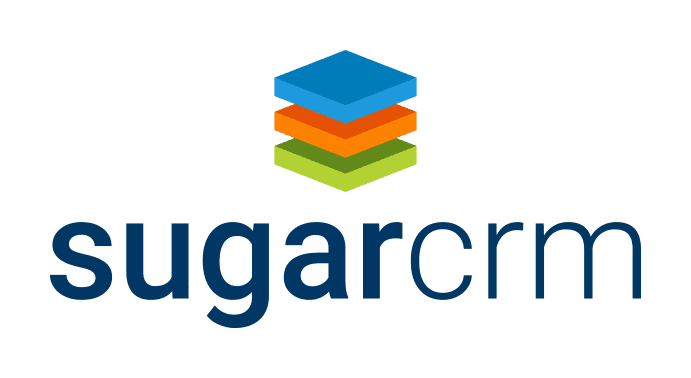Finance and Project Teams Can Drive Higher Growth and Customer Satisfaction
The Defining Moment for Tech Services
Information Technology and Services firms are facing a growing set of complex operational and strategic challenges. New fast-evolving business models and technologies—including the cloud, mobile devices, the Internet of Things and Artificial Intelligence to name a few—are creating a defining moment for technical services firms.
These technologies have the potential to upend the business models of tech services firms. In practice, that translates into pressures on:
- Price – Firms need to evaluate and understand their market environment to properly price their services and create competitive bids that provide satisfactory margin.
- Utilization – There’s a strong need for optimized utilization of resources and assets to eliminate unproductive, nonrevenue-generating idle time.
- Performance – Crisp operational execution—with on-time, on-budget performance usually spells the difference between success and failure.
- Growth – Firms must proactively manage growth, ensure and retain profitability and customer satisfaction, and avoid unprofitable, low-margin business.
To respond to these opportunities and threats, finance organizations must understand the new business mandate. They need to build their processes and deploy best-of-breed technology to create greater efficiencies, increase customer satisfaction, improve operating margins and spur company growth. Finance professionals must provide leadership as the firm strives to deliver high-value services at disruptive price points, decrease operating costs, launch innovative new services, and continue to increase revenue.
Ultimately, the finance team achieves success in tech services through a “best-in-class” approach that blends and unifies finance best practices and airtight project accounting in one system with shared data, reporting, and processes.
Tech Services Firms Strive to Achieve Value
In the tech services industry, value and business performance are achieved by optimizing execution in several ways. Firms strive to improve on the following key performance metrics:
- Increased revenue growth
- Stronger win ratio
- Decreased revenue leakage
- Improved operating margins
- Percentage of billable employees
- Increased employee utilization
The challenges for finance professionals in the tech services industry come from a variety of sources, both internal and external.
- – In too many organizations, information and financial processes are trapped in silos, thanks to patchwork processes and outdated technology. Finance teams struggle with inefficiencies, lengthy closing cycles, billing errors, and compliance issues that are all directly traceable to disconnected finance processes, disjointed project management, and poor support for complex revenue recognition frameworks.
- – For many firms, budget and schedule issues are constantly hampering team performance. Cost overruns, unanticipated delays, billing errors, and a systemic lack of support for projects, teams, and resources all stem from overmatched, antiquated systems infrastructures.
- – Disconnected processes and systems—a separation of financial data and operational data—inevitably lead to incomplete and inaccurate data, which means an inability to see accurate project information and project profitability. That translates into billing disputes, lower customer satisfaction, client churn, slower revenue growth, and margin erosion.
- – When you don’t have reliable financial and operational data, you don’t enjoy a true picture of your profit history. Soon, you’re facing poor market segmentations, incorrect margins, and off-target bids. The absence of reliable historical data also undercuts efforts to create proper forecasts to direct the company’s future efforts.
Four New Mandates for Finance in Tech Services Firms
The rapid innovations and widespread adoption of technology within tech services firms is creating a pivotal moment for financial leaders—the previous ways of managing finance and operations data will no longer suffice. Although the path forward is challenging, several key mandates have emerged that, when followed, can position finance teams in tech services firms to achieve and maintain better business performance.
- 1. Modernize the Finance Infrastructure—To avoid costly failures and lapses, the savvy tech services firm must embrace the financial infrastructure of tomorrow, a system that provides comprehensive— but simple-to-use—functionality to bring finance, projects, and reporting/analysis together. That means breaking down silos to create end-to-end, compliant processes for project-based accounting, time/expense capture and approval, billing, and revenue recognition—instead of the weekly spreadsheet scrambles, billing errors, lost T&E dollars, and slower manual workflows. The right financial management foundation shows you projects and operational and financial information in one unified view.
- 2. Support the Entire Project Life cycle—Tech services firms live and die by the quality of their project execution. Ideally, you want to automate and connect your entire project life cycle to achieve consistently reliable project delivery. Of course, manual tracking and validations erode confidence in your information and processes, and project teams will simply avoid systems and processes that are too complex to drive up adoption. You’ll need to maintain a strong emphasis on the importance of usability and manageability which means providing easy ways to generate reports, clickable graphs with drill down capability, and scroll through dashboards of key indicators.
- 3. See Real-Time, Actionable Metrics—In tech services, the only time is real time. Can you instantaneously track any project and determine if it is on-time and on-budget? You need to avoid surprises with real-time views into budgeted, billed, and actual amounts, as well as budget and schedule variances. That means you can focus on customer satisfaction, not disputes and delays.
- 4. Turn Insights into Optimized Business Performance—Fine-tune your business plans to not merely understand past performance, but to take action to improve future performance. For instance, you can analyze historical project profitability to strengthen forecasts, improve sales planning, identify the types of projects that are more profitable, make smarter bids, and drive profitable growth.
ProKarma, a fast-growing IT services firm, made the move to Sage Intacct and significantly improved its efficiency by streamlining and automating key financial processes.
Previously, the company spent 20–24 hours per month on global financial consolidations. With Sage Intacct, that same process now takes between two to four hours. As the company has grown, Sage Intacct has also enabled ProKarma’s accounts payable team to process 40 percent more transactions—without adding headcount.
To reduce revenue leakage, ProKarma applies not only good financial and KPI reporting, but pinpoint exception reporting. Its finance team uses Sage Intacct to automatically generate weekly accounts receivable aging reports for specific managers based on invoices that are overdue by more than 60 days. ProKarma also uses Sage Intacct Project to optimize its staffing and maximize project profitability, which helps drive accelerated growth.
The Benefits of Best-in-Class Cloud Financial Management Solution for Tech Services
Tech services firms can achieve tremendous benefits by adopting a best-in-class finance and project accounting technology foundation. In most instances, they revolve around four key areas:
- – You can improve efficiencies, increase billing accuracy, strengthen compliance and accelerate closing cycles using an end-to-end financial management solution that spans accounting, project management, time and expense, billing, and revenue recognition.
- – Improve the predictability of your business execution, including delivery, scheduling, resource utilization, billing accuracy, and customer retention by ensuring you capture and use accurate time and expense and project data in a cloud system that is easy to deploy and adopt across the organization.
- – Earn new business and retain loyal customers by ensuring on-time, on-budget delivery driven by complete visibility into active projects. That translates into greater volumes and healthier margins. Leverage historical information to price future projects and optimize both revenues and margins.
- – Identify the best customers and market segments for profitable growth, hire the right talent, and ensure that backlog and revenue projections track to plan through complete visibility into the performance of your overall business.
Taking It to the Cloud
Many tech services firms recognize that cloud-based financial management solutions can unlock a wide range of important business, technical, and economic benefits.
- – Cloud architectures eliminate capital expenses and reduce operating expenses, saving you money and giving you greater financial latitude.
- – Add and subtract users as needed. Cloud solutions are infinitely scalable and offer an easy way to scale up and down based on demand, business conditions, and need.
- – You can use the system virtually anywhere, at any time, on virtually any device.
- – Let new users create their own accounts with little human intervention or vendor assistance.
- – Billing is based on consumption in a pay-as-you-use mode. A cloud financial management solution can provide your business with the tools to adapt and successfully compete in a rapidly changing environment.
Cameo Global, a global managed services company, delivers more than 900 complex technology projects per month. Here are just a few of its outcomes after implementing Sage Intacct:
- Increased productivity and minimized staffing needs, avoiding two FTEs and saving $100,000 in salaries.
- Shortened global consolidations from several months to just a few weeks.
- Eliminated one week of data entry each month through integration with other business systems.
- Provided greater insight into financial and operational trends across multiple dimensions via flexible, real-time reporting.
- Supported data-driven decision making with accurate, timely information for optimizing project profitability and billing utilization.
Conclusion
Forward-thinking tech services firms are striving to move beyond outdated finance paradigms— spreadsheets, manual processes, error-prone workarounds, and audit-unfriendly exceptions. Today, tech services firms need the ability to bring finance and operations together in a single, integrated system that enables seamless collaboration, real-time information sharing, and crisper execution. That means these firms need a cloud financial management solution that innately understands and supports project-based business models. An integrated solution that seamlessly unifies both project accounting and financial information in a single, modern financial foundation can deliver meaningful, measurable impact on the firm’s performance: strong revenue growth, reduced revenue leakage, higher win ratios, improved utilization and billing, and much more. In a tech services firm, these types of activities and metrics are inseparable.
By using an automated finance platform to get and keep the financial house in-order while tying in operational and project data, you drive down executional costs and keep the business focused on customers—not transactions, broken processes, and data headaches. A unified system that blends core financial capabilities with front office and project execution capabilities helps tech services firms create well-executed internal operations that enable finance to become a true partner in order to drive growth and improve the firm.
About Sage Intacct
Sage Intacct is the innovation and customer satisfaction leader in cloud Financial Management. With the powerful combination of Sage and Intacct, the Sage Business Cloud offers the best capabilities of both companies. Bringing cloud computing to finance and accounting, Sage Intacct’s innovative and award-winning applications are the preferred financial applications for AICPA business solutions. In use by organizations from startups to public companies, Sage Intacct is designed to improve company performance and make finance more productive. Hundreds of leading CPA firms and Value Added Resellers also offer Intacct to their clients.

